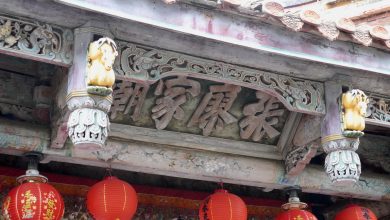文/阿東機
鈴木英司的新聞剛爆出來時,震驚日本各界,他的新書大大的印著「為什麼中國要抓捕我?」他的為什麼跟普通人輕輕的發出「咦?為什麼呢?」不太一樣,因為他從青年開始,就是標準親中派,帶領大批的日本人前往中國,他真心喜歡中國,又植樹、又捐錢,也跟著中國學生前往大使館示威,不斷地在日本各界宣傳中國的優點。然後,在一個熱到不用生火就能烤肉的北京午后,他被抓了,直到2023年底,才回到日本。
其實,只要略略耳聞過中國近代史,就知道「又一個倒楣傢伙」!
新唐人曾有條銀行業競爭激烈的新聞,筆者不是因為內容而注意到新聞,而是被奇怪的句子所吸引,「內捲(競爭激烈)不涉及個人」,產業內捲當然不會涉及到個人,但記者採訪到行員也跟著這一波內捲被裁員、減薪。
涉不涉及個人?民眾會依據法律說,這不涉及個人,但問題是,中國這範圍是誰說了算?顯然不是百姓,也不是法律,鈴木英司不認罪,也是直接被判刑。
被中國拘禁的2279日,從這裡開始
鈴木英司(1957—),被捕的時候是59歲,體重96公斤。
2016年7月,北京中午室外溫度大概40度左右(p30),他正在北京與朋友討論研討會舉辦細節,要搭機返回日本時,在飯店前坐上了一輛假計程車,抵達機場後,被5、6名看來非善類的人士使用蠻力,抓進廂型車(p30)。
2022年10月,期滿返日時,他僅剩68公斤(p160),臉上出現斑點,頭也禿了(其實看起來還好)。
我簡直要懷疑自已的耳朵了。這個國家的法律制度到底是紫麼搞的。只是這種程度的對話就能監禁人的法律制度、人權觀念,讓我又驚又怒。(p45)
2023年5月,《中国拘束2279日:スパイにされた親中派日本人の記録》出版。
2024年元月,中文版《被中國拘禁的2279日:親中派日本人被當成間諜,被逮捕、監視居住、審訊、監禁……的親身見證》,由晨星出版,矢板明夫、李明哲、李孟居都幫他寫了序,後二者都曾在中國被關押多年。
書中可分為三部分(非書中章節):
一、如何開始接觸中國、繼而成為中國通?
二、被中共「監視居住」到不承認~但仍被判定有罪
三、監獄內部(國際監獄)、特色獄友(被捲入的法官)
第一、二部分已有諸多媒體轉載,第三部分也有媒體轉載,你一定想不到,在中國會消失、會爆炸的東西多了,法官的公文消失了、被鎖進國安保險庫中的關機電腦爆炸了……法官那部分,有放在他的書中。
簡單來說,被中共關押之前的歷程是:到中國參訪、赴中教書、回日成立協會。
日本公安調查廳有「不得了的(中國)間諜」。(p107)
開到釣魚台周邊的所有漁船上,都有軍人。(p135)
老師一句「未來,中國必將成為世界大國。」讓國中生鈴木英司對中國產生了極好的印象。
1983年9月,中、日在北京簽署關稅協定、中共總書記胡耀邦11月訪日。
鈴木英司(26歲)則是在更早一些、8月參加了日本左派組織的訪中團,去北京、哈爾濱、長春、上海等地,了解日本當年侵略中國東北的情況,例如「日本七三一部隊」舊址(p58)。他也見到喬石、張香山。
提問/1971年,中華民國退出聯合國,鈴木英司與其他日本人怎麼看在台灣的中華民國?
隔年再訪中時,他已是代表團副團長,帶著176人前往拜訪;他越發喜歡中國,並努力與中國交流,成為中共組織「中聯部」上下都很熟悉的對象;日本國會議員還以「關於中國的事,就問鈴木」來定位他(p62)。
39歲,他開始到中國教書,先後在北京外國語大學、外交部外交學院、國安部國際關係學院、中國人民大學教書。他對這四個地方人事的親身體會,大概沒有人有,尤其國安部組織。書中還描述了他對李克強、胡春華的印象(p74)。
換句話說,鈴木英司並非等閒之輩,他是具有雙方政治資源的日本人。
提問/1989六四天安門、1999鎮壓法輪功,都沒有改變對中共的想法嗎?
最後,他也花了一些篇章分析中、日未來關係,並點名「不幫助他的日本外交官」。但所謂的不幫助,也不是完全不接觸,而是態度被動,當然這對於在牢內的人,是很難接受的。不過,「中國政府為了防止感染,要是不打中國製的疫苗,(日本外交官)就不能見受刑人。(p177)」也是必須克服的難題。
等到第三位外交官來看他時,終於獲得比較積極的幫助。鈴木英司非常有追根究底的精神,回到日本後,一一找到當事人,確認他們真的是都沒有接到外務省的通知。是說,當初答應要幫忙轉述的外交官,不知道他看到這本書,有什麼想說的?
書中也有鈴木英司的深思,「中國究竟是從什麼時候開始變了呢?」(p136)
他認為,中國是一個會強硬推行自己主張的國家,但是過去應該更冷靜一點。面對Covid-19,中共作為令人質疑,「中國難道不應該多加考慮世界各國的觀感嗎?」(p188)

鈴木英司似乎認為,是因為某人上台,將中國帶往強權政治,這點其實很多人都說過。但中共迫害中國人的歷史,是從還沒有拿到政權的「解放戰爭」就開始,可不是某人上台後才開始。
日本即使資助中國各方面長達十年,在六四悲傷氛圍還瀰漫著的時候,日本(首相海部俊樹)在隔年就率先解除對中共的投資、貸款限制;但中共仍然時不時就要推動一波仇日運動,不知道他心裡怎麼想的?
因為中國的難以理解,鈴木英司認為,民間交流相對更加重要。但在他被抓捕後,日、中交流情形似乎只是讓一些人暫停,還是有人繼續前往中國失蹤。最近,被抓的是在日本的中國人(已歸化),同樣也是研究者,鈴木英司在電視節目上表示,他認為,這是中共在推出《反間諜法》後,對日本政府的又一大底線測試。
電視台就詢問他的想法,這些學者被抓會怎麼樣?「根據我的經驗,大概是從『監視居住』開始吧。」
與很多被抓的台灣人家屬不同,鈴木英司狠清楚,透過媒體大肆報導,自己才有可能不被逮捕。
「為什麼我會拜託傳話給這麼多人呢?因為,我想說在逮捕前,可能可以做點什麼,也說不定。」(p169)
人是善忘的,就像長春圍城一樣,誰還記得當年的罪魁禍首?不要幾年,大眾就會忘記曾經被迫害的鈴木英司(煙)。
(所以,他才說,從今以後,會一直說著自己的故事。祝福他了。)
《Detained in China for 2279 Days》 by Hideji Suzuki
Translated by Simon
When the news about Hideji Suzuki(鈴木英司) broke, my first reaction was, “Wow, even someone so pro-China got arrested?” But it didn’t feel entirely unfamiliar. If you’ve ever skimmed through modern Chinese history, you’d know this is just another case of “another unlucky guy.” You don’t raise a wolf expecting it to plow fields or guard your house, do you?
Hideji Suzuki (born 1957) was 59 years old and weighed 96 kilograms when he was detained.
In July 2016, with Beijing’s midday outdoor temperature hovering around 40°C (p. 30), Suzuki was discussing seminar details with friends and was about to catch a flight back to Japan. In front of his hotel, he got into what turned out to be a fake taxi. Upon arriving at the airport, five or six menacing individuals forcibly dragged him into a van (p. 30).
By October 2022, when he was released and returned to Japan, he weighed only 68 kilograms (p. 160), his face was covered in spots, and he had gone bald. In May 2023, he published his book in Japanese: “2279 Days of Detention in China: A Record of a Pro-China Japanese Branded as a Spy”.
In January 2024, the Chinese version was released: “Detained in China for 2279 Days: A Pro-China Japanese Branded as a Spy—Arrested, Surveilled, Interrogated, and Imprisoned… A Firsthand Account” published by Morning Star Publishing. Unfortunately, there seems to be no English version yet.
“I could hardly believe my ears. What kind of legal system is this? A system that allows someone to be imprisoned for such trivial conversations, with such a disregard for human rights—it shocked and infuriated me.” (p. 45) ~ by Hideji Suzuki
Japan’s Public Security Intelligence Agency has information on “significant (Chinese) spies.” (p. 107) ~ by Hideji Suzuki
ll fishing boats operating around the Diaoyu Islands have military personnel on board. (p. 135) ~ by Hideji Suzuki
In simple terms, as a middle school student, Hideji Suzuki was deeply impressed by a teacher’s remark: “In the future, China will surely become a global superpower.” This sparked his admiration for China.
Before his detention by the Chinese Communist Party (CCP), his journey included: visiting China, teaching there, and founding an association back in Japan. In September 1983, China and Japan signed a tariff agreement in Beijing, and CCP General Secretary Hu Yaobang visited Japan in November. At age 26, Suzuki had joined a left-wing Japanese delegation to China in August, visiting Beijing(北京), Harbin(哈爾濱), Changchun(長春), and Shanghai(上海) to learn about Japan’s wartime invasion of Northeast China, including the site of Unit 731 (p. 58).
He also met with Chinese officials like Qiao Shi(喬石) and Zhang Xiangshan(張春山).
The following year, as deputy leader of a 176-member delegation, he visited China again, growing even fonder of the country and actively engaging in exchanges. He became a familiar figure to the CCP’s International Liaison Department, and Japanese parliamentarians would say, “If it’s about China, ask Suzuki” (p. 62).
At 39, he began teaching in China at institutions like Beijing Foreign Studies University, the Ministry of Foreign Affairs’ Diplomatic Academy, the Ministry of State Security’s Institute of International Relations, and Renmin University of China.
Few people have had such direct experience with personnel at these four institutions, especially the Ministry of State Security. The book also describes his impressions of Chinese leaders Li Keqiang(李克強) and Hu Chunhua(胡春華) (p. 74).
In other words, Hideji Suzuki was no ordinary figure—he was a Japanese individual with political connections in both countries. In the book, he dedicates chapters to analyzing the future of China-Japan relations and calls out “Japanese diplomats who didn’t help him.”
However, “not helping” doesn’t mean no contact; rather, their attitude was passive.
To prevent infection, (Japanese diplomats) couldn’t meet detainees unless they received Chinese-made vaccines. (p. 177) ~ by Hideji Suzuki
Suzuki, however, was tenacious. Upon returning to Japan, he tracked down the relevant individuals and confirmed that none had received notifications from the Ministry of Foreign Affairs.
One wonders what the diplomat who promised to pass on his messages would say after reading this book. The book also reflects Suzuki’s introspection: “When did China start to change?” (p. 136)
He believes China is a country that assertively pushes its agenda but was more restrained in the past. Regarding Covid-19, he questions the CCP’s actions: “Shouldn’t China have considered the perspectives of other countries more carefully?” (p. 188)
Suzuki seems to attribute China’s shift toward assertive power politics to a specific leader, a view shared by many. However, the CCP’s history of persecuting its own people began during the “War of Liberation,” long before any single leader’s rise.
Unlike many detained Taiwanese whose families remain silent, Suzuki was acutely aware that publicizing his case through the media was his best chance to avoid prolonged detention.
Why did I ask so many people to pass on messages? Because I thought maybe, just maybe, something could be done before my arrest. (p. 169) ~ by Hideji Suzuki
People are forgetful. Just like the Siege of Changchun(長春圍城), who still remembers the culprits? In a few years, the public may forget Hideji Suzuki’s ordeal.






